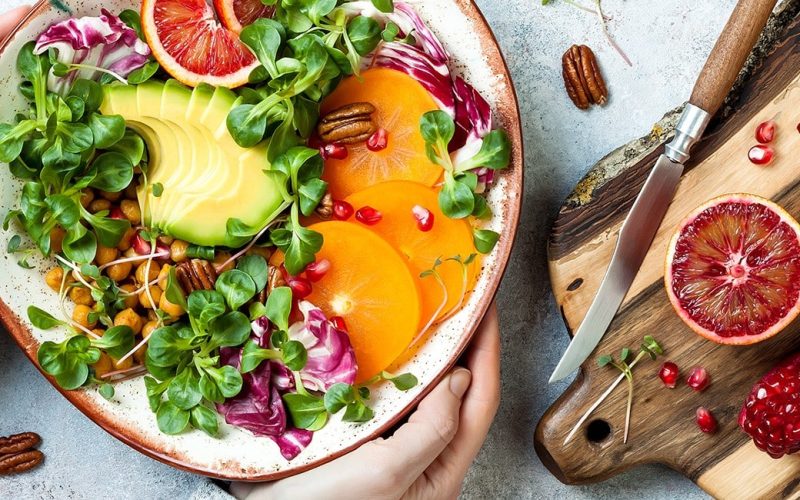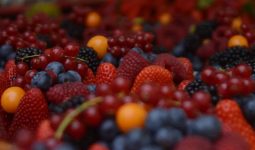Principals are chemicals that are naturally occurring and produced by plants. The lovely colors that some plants have are as a result of some phytochemicals like the beautiful blues in blueberries and the catchy red color of the raspberries, and other phytochemicals give plants their unique aromas.
These phytochemicals are useful to the plants as they attract small insects line bees and beetles and other creatures to promote pollination or help to spread the plant’s seeds.
Phytochemicals are known to be biologically active, so they and can directly affect your health when you consume the plants that contain these compounds.
Most studies available at the moment are preliminary research carried out on lab animals or tissues and cells. For researchers to find out if the phytochemicals possess any real health benefits, they must first be tested in humans, and the outcome must be noted.
It takes several years to get information of that kind, and sometimes it is challenging because the phytochemicals just don’t measure up. Phytochemicals are usually extracted from plants, then processed and sold to people as dietary supplements.
These chemicals are generally believed to be safe for human consumption, but there is little or no regulation regarding their effectiveness or dosages, so you must speak with your doctor or healthcare provider before you take any of these health supplements, mainly if you have dealt with any health conditions in the past or are dealing with one now.
Phytochemicals in Your Diet
There is a wide range of phytochemicals in the different plant foods that you consume on a daily basis, and some sources have considered these chemicals to be useful nutrients.
Nevertheless, unlike your vitamins and minerals, these chemicals are not regarded as essential, and there are yet to be any established dietary reference intakes.
It is a fact that there is a fair amount of evidence that when you feed on foods that are rich in plants and other green products, you will enjoy a broad range of health benefits.
Come out; however, studies are yet to explain how much of these benefits are a result of the phytonutrients in the plants that you consume. The benefits that you enjoy from your plant-based diet may be as a result of the fiber or nutrients.
There is also a possibility that people who consume more of plant-based foods tend to be in more active and gain less weight than those who stuck up on processed and animal-based food
Types
There are different groups of phytochemicals, and they are based on their different chemistry. A few of the best-known phytochemicals are carotenoids, which include beta-carotene, lycopene, alpha-carotene, lutein, and zeaxanthin.
All of the above-listed phytochemicals can be processed or converted to vitamin A in the body, but for the most part, you can get plant-based vitamin A from the beta-carotene.
Another category of phytochemicals is the flavonoids family.
Flavonoids include but not restricted to the following:
- Anthocyanidins, which can be found in blue, red, and purple pigments of grapes and berries.
- Flavanols, which can be found in chocolate, tea, berries, apples, and grapes.
- Flavanones, which are mainly found in citrus fruit like oranges, and lemon.
- Flavonols are a range of fruits and vegetables.
- Flavones that is found in hot peppers and celery.
- Isoflavones are found in legumes and soy.
Other phytochemicals include some compounds that you may have read about such as:
- Lignans that is found in whole grains and seeds.
- Resveratrol is found in peanuts and grapes.
- Phytosterols that are popularly used to lower high cholesterol levels
- Indole-3-carboninol that is mainly found in cruciferous veggies.
- Curcumin, which is mainly found in turmeric.
- Chlorophyll, which is found in leaves and any green vegetables.
Fibers are also fit to be classified as a phytochemical because you can only find them in plants, but sometimes fibers are classified as a carbohydrate.
There are a good number of dietary fibers such as cellulose, hemicellulose, beta-glucan, pectin, oligofructose, inulin, gum, and resistant starch.
Eating a diet that is high in fiber will help to keep a person’s cholesterol levels in check, and also improve the digestive system function.
Feeding on a meal that is rich in fiber can go a long way to slow down the blood sugar spikes that can happen when you eat a large amount of starch or sugar.
Here are the most critical Phytochemicals facts that you should know. We hope that you found this article helpful. Do not hesitate to leave your comments below.
We look forward to hearing from you.







